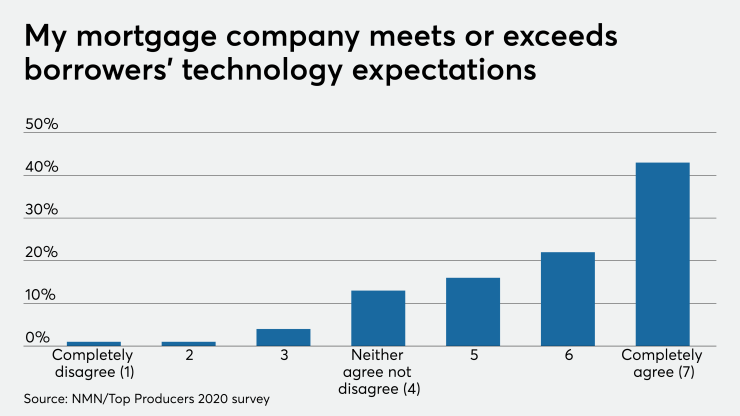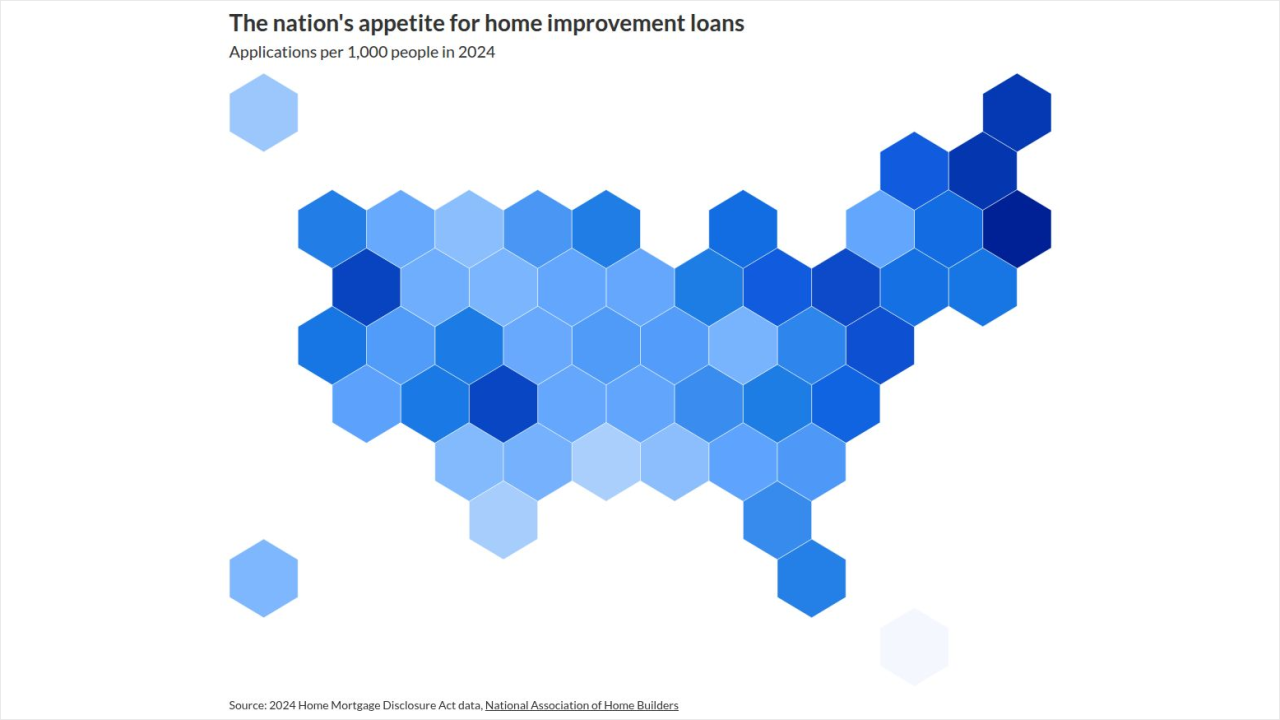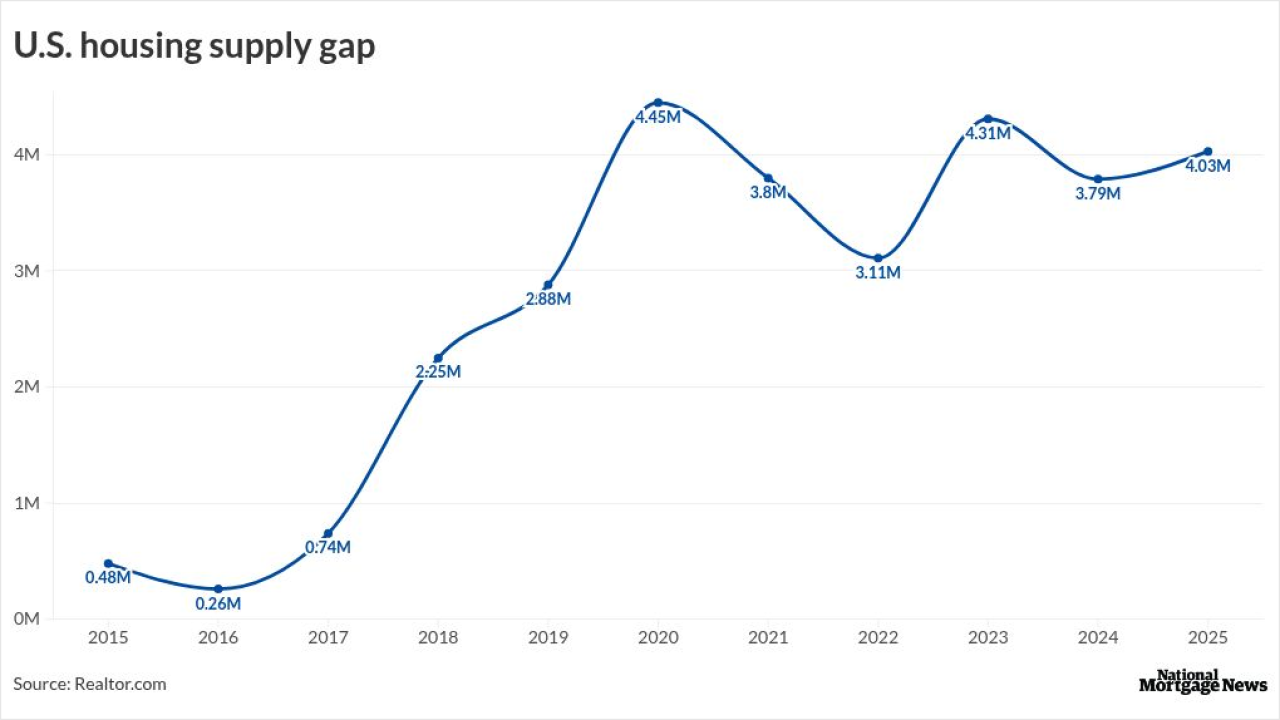Much has changed since this year's Top Producers survey first got underway. While consumer needs related to technology and financial challenges remain just as relevant, they've become more urgent.
Take, for example, the fact that many said there's a need to increase the ability to conduct remote closings. Recent weeks have only intensified that view.
"I think we need to move to 100% remote/e-signing. There is no reason why the borrowers should still go to the title [agent]/attorney to close on a mortgage. We also need to find more dependable automated valuation methods and minimize physical inspection of the properties," said Shashank Shekhar, CEO of Arcus Lending in San Jose, Calif.

To be sure, some respondents pointed to hurdles standing in the way of that change — hurdles that relate to risks inherent in the mortgage process.
"The lack of face-to-face meetings and access to credit has been diminished and I think [it] could have a dramatic effect of over 8 million households," said Brian Carson, a branch manager at Certainty Home Loans in Charlotte, N.C. He is concerned in particular about the impact it will have on minority, rural, non-English speaking and elderly populations.
While that presents a challenge, intuitive technology with relative simplicity might help if it can get to these borrowers and they can be taught how to use it, one respondent suggested.
"Consumers that are not tech savvy need more ways to access the system so they can participate," said Lisa Mathews, a branch manager at Gateway Mortgage in Cranford, N.J. "They need to have more ways to interact — video chats, zoom meetings may be helpful."
Consumers facing short-term financial challenges should be given more options and information as well, respondents said.
"I think [the] mortgage industry should come up with better foreclosure-prevention program[s] for clients that experience temporary hardship but are willing to make it work. There should be more education in this subject matter," said Ania Kozera, a mortgage consultant at Ultimate Rate in Des Plaines, Ill.
People with financial hardships stemming from health conditions are among those that need more such options, respondents said.
"I feel like derogatory medical debts should be weighted less from a credit scoring perspective as a majority of people have them and they can drastically impact someone's ability to qualify for a mortgage," said Michael Richardson, a branch manager at Bay Equity Home Loans in Reno, Nev.
Would-be first-time homebuyers' lack of financial education stood as another hurdle respondents identified as limiting the number of qualifying borrowers in the home-mortgage market.
"I believe many buyers are unaware of what is needed to approve them for a home purchase," said Celina Tominna, a loan officer at Point Mortgage in Chula Vista, Calif.
Despite this, a broad swath of other consumers managed to have their housing finance needs met, other respondents noted.
But that's subject to change in a mortgage market with a history of undergoing extreme cyclical swings over time.
"Every day is a different day and we just adapt to each day," said Michael Bornstein, a vice president at NewFed Mortgage in Danvers, Mass.





